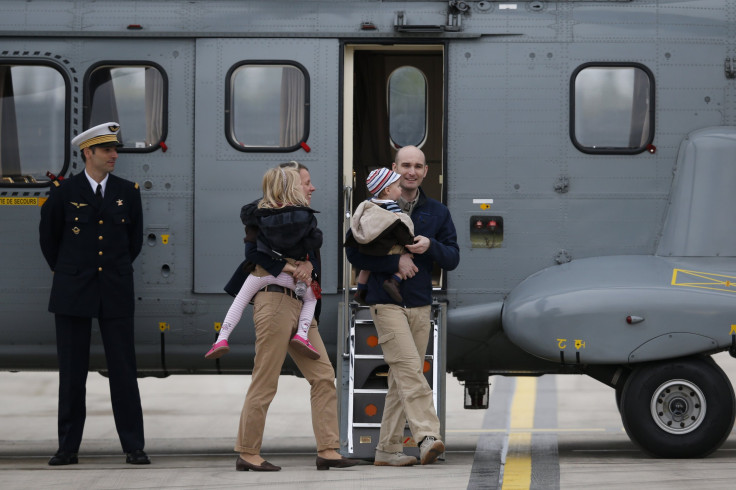Former ISIS Hostage Says Jihadists Committing Acts That Are 'Impossible To Justify'

Nicolas Henin, a French journalist who was once held captive by the Islamic State group, said that he saw “flickers of doubt” among his captors during his 10 months as a hostage. Henin, who was released last April, had reportedly been held with James Foley -- the American journalist beheaded by ISIS in August -- and several other Western hostages who were subsequently executed.
“I noticed that these jihadists have little to do with the local culture -- Arab or Muslim culture -- they are children of our societies,” Henin told BBC. “They speak our language, they have the same cultural references we do. They watch the same movies as us, play the same video games our children play. They are products of our culture, our world.”
Henin, along with three other French journalists, had been abducted by Syria-based militants in June 2013. In an interview with ITV News in October, Henin said that the murders of his former cellmates -- Foley, Steven Sotloff, David Haines and Alan Henning -- had brought back “brutal” memories of his time as an ISIS captive.
“These (the jihadists) are fragile people. As soon as they arrive, (their recruiters) hook them and push them to commit a crime, and then there is no way they can turn back,” Henin told BBC, adding that though many jihadists had picked up arms with a genuine desire to help Syrians, there were a few who “even had regrets about what they were doing,” in the name of the cause.
“I remember with a couple of (the captors), we had discussions that showed their convictions were a bit fragile … they had to justify it (their actions) to themselves, and some of their acts were impossible to justify,” Henin reportedly said.
Henin also said that asking the militants for pity was the worst thing the captives could do. “They are totally closed to pity … It’s stupid. Never try it,” he told BBC.
© Copyright IBTimes 2025. All rights reserved.





















